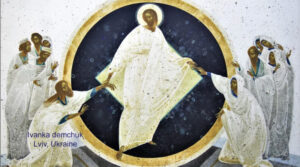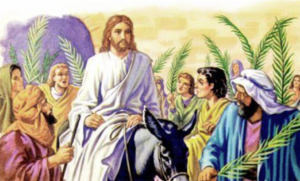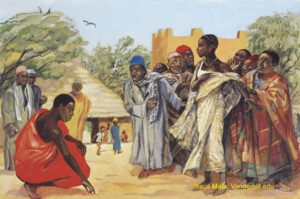Today we celebrate the 103rd anniversary of the first apparition of Our Lady to a group of shepherd children in Fatima, Portugal. The series of apparitions from May through October, 1917 has , in the words of Bishop Robert Barron, “beguiled political and cultural commentators outside the ambit of the Church, and it is this wider implication that I would like to explore.” Here are highlights of the bishop’s reflection on the fatima appearances and their significance to us as Catholics in understanding God’s relationship with God’s creatures.
“This particular visitation of Mary took place at the height of the First World War, which signaled the end of Enlightenment confidence in the perfectibility of the human being, and in the year of the Bolshevik Revolution, which would exert, for most of the twentieth-century, a massively deleterious influence. To the simple children, who barely understood what she was saying, Our Lady announced that the Great War would soon end, and she also called for the consecration of Russia to her Immaculate Heart. Furthermore, she urged the children to pray for the conversion of Russia, which was a mysterious exhortation, given that, at the time of this communication, the Communist revolution in that country had not yet taken place.
. . . .
So what does the message of Our Lady of Fatima, considered in the widest sense, imply? It implies that the God of the Bible is a living God, by which I mean, a God who involves himself as an actor in human history. . . . Throughout the historical books of the Old Testament, we find events unfolding according to recognizable dynamics economic, political, and psychological, but through it all, under it all, God is also acting, mysteriously accomplishing his will.
“. . . Kings, emperors, generals, soldiers, and writers made their moves, but underneath them all, God was making his moves and accomplishing his purpose. I will readily grant that the sifting of this providential design can be a dicey business, subject to various types of distortion and wishful thinking, but I will insist that abandoning the effort altogether is to surrender to a reading of history and a theology of God that are at odds with the Bible.
“In our own time, no one played the role of theological interpreter of history more effectively than St. John Paul II. Having personally experienced the tyranny of two of the worst and most abusive dictatorships in human history, Karol Wojtyla could nevertheless, upon assuming the papal office, tell the world “to be not afraid.”. . . Because John Paul read things theologically, he knew that mercy and love finally triumph, and he understood that any proposal for human flourishing that did not include God would necessarily fall victim to its own internal contradictions. This latter conviction sustained his non-violent but massively effective assault upon Communism from 1979 to 1989.
“And his theological reading of history enabled him to grasp that Our Lady of Fatima’s summons to pray for the conversion of Russia was far from a pious fantasy, that in point of fact, it provides the interpretive key for understanding perhaps the pivotal event in the history of the late twentieth century.”
Source: OUR LADY OF FATIMA AND A THEOLOGICAL READING OF HISTORY,by Bishop Robert Barron May 16, 2017




